research
June 1, 1996
New hope for ways to reverse breast and ovarian cancers
Biologists have found the first direct evidence suggesting that the gene known to cause hereditary forms of breast and ovarian cancers can also halt—and in some cases reverse—both diseases.
The weaker sex? If there’s a disaster, it’s men
Women are better equipped than men to survive a long-term natural disaster, says a UW anthropology professor.
March 1, 1996
Some global warming may be natural, researchers say
As much as one-third of the climate warming since 1975 may come from natural variability in weather patterns, particularly the El Nino effect, say UW scientists.
Smoking, drinking warnings may backfire with older children
Could anti-alcohol and tobacco messages aimed at older children actually backfire? If they are extremely negative, they might, say UW researchers.
Ultrasound: the ultimate Band-Aid?
Sound waves could be used to control internal bleeding suffered by soldiers on the battlefield or motorists in a car wreck if a $10 million UW research project is successful.
It’s time to try a new approach to fighting addictions, UW professor says
Harm reduction—which European countries have used for years—has edged onto the stage as an alternative solution to devastating social and health problems.
UW astronomers use new tools to investigate the mysteries of the universe
A handful of scientists are probing previously unknown mysteries of the universe at a pace unimagined even a decade ago.
December 1, 1995
Nude photos, taken in the name of research, briefly roiled UW
“Nude Photos of U.W. Girls Stir Protests" screamed the page one headline in the Seattle Post-Intelligencer.
‘Super mice’ illustrate the power of genetic engineering
Scientists using technology discovered at the UW and other research universities are inserting bits of DNA from a person into a pig or a mouse.
Failure hurts more to people with low self-esteem, research finds
According to some psychological theories, persons with high self-esteem should hurt more than those with low self-esteem because they aren't used to seeing themselves fail. In fact, the reverse is true, according to UW Psychology Professor Jonathon Brown.
UW study links low folic acid levels to heart disease
UW researchers have found a "strong link" between diets lacking folic acid—found in high levels in orange juice, spinach and dried beans—and heart-related problems.
UW research funding reaches an all-time high
For the fiscal year ending June 30, the University of Washington received $477 million for research grant and contract awards, a record amount topping last year's $459 million by 4 percent.
September 1, 1995
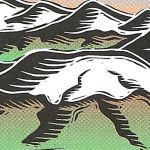
St. Helens still a threat
After blowing its top off 15 years ago, Mount St. Helens still remains the number one threat along the line of Cascade Mountain volcanoes.
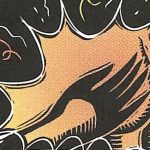
Estrogen-cancer link disproved
Women who take estrogen or a combination of estrogen and progestin as hormone replacement therapy apparently do not face an increased risk of breast cancer.
June 1, 1995
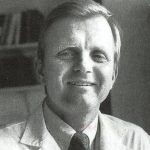
Below the belt
Work on male fertility and potency have also made the UW a national leader in advancing men's sexual health.
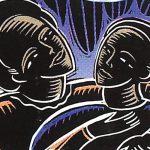
‘Bad’ behavior studied
When it comes to raising children through what can be perilous years of early adolescence, mothers can be powerful if they just hang in there.
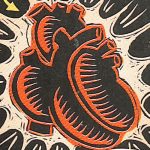
Meds raise risk
Calcium-channel blockers, widely prescribed to lower high blood pressure, may actually increase the risk of heart attack by as much as 60 percent.
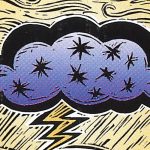
Clouds in focus
Scientists are still puzzled by how clouds exactly rule the skies. At the UW, they are looking at tiny, cloud-borne ice particles.
March 1, 1995
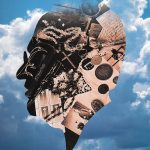
Hope against Alzheimer's
Almost half of all Americans over 85 have Alzheimer's, but hope is on the horizon as UW research begins to break its secrets.
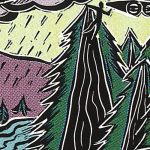
Watershed study
UW forest resources professors and students have built probably the largest research tower for studying tree canopies in the United States.